Student Blog
Admissions
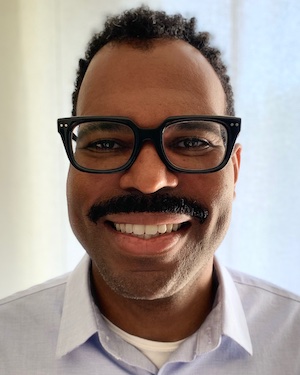
An OT walks into a bar . . . ⟩
September 5, 2021, by Guy
Admissions What are OS/OT?
In September about three years ago, I was bartending in Brooklyn, NY and a group of teachers, some regulars of mine, walked into the bar with their new colleague, an occupational therapist. This OT had just made the switch to occupational therapy from another career. Just like I was attempting to do! At this point, I had started the process of switching careers, I had just finished taking my first pre-requisite class for OT grad school at a local community college, and I had not really had the chance to have any long in-depth conversations with anyone who had gone back to school to be an occupational therapist. In many ways I was still in the dark not only about the profession but what exactly I had got myself into — pre-requisites, needing volunteer hours, grad school applications — what? Also, I had been wanting to get a chance to do some observation/volunteer work in adult inpatient acute settings and had been having difficulties securing any place that would allow me to do so. Fortunately, this occupational therapist turned out to be the friendliest, most helpful person. They broke down the next steps I would need to take to achieve my short term and long-term goals — great activity analysis. They then connected me to a volunteer opportunity at the local VA hospital in Brooklyn, where I first heard about the USC occupational therapy program (Thanks Anita K., USC Class of 2012) and learned so much about the day to day of an occupational therapist at the VA.
Over the next year whenever that occupational therapist walked into the bar, they would always give me what I now know was invaluable information about the profession of occupational therapy. To this day, I credit them for not only giving me a very clear idea of their own experience of changing careers and becoming an occupational therapist, but more importantly I am grateful for getting a first-hand view of what my future path might entail. Through interacting with this occupational therapist, I came to realize that it wasn’t crazy to be going back to school after being out of school for so long and that becoming an occupational therapist was what I thought it would be and more. In the end, I credit those conversations and that opportunity at the VA for helping me to learn so much about the profession and providing me with a fuller understanding of what I had got myself into. Before that occupational therapist walked into the bar, I thought I knew why I was making this career change but didn’t quite know how. I was becoming an OT because I wanted to work one on one with people to do those things that are important and meaningful to their lives, and I felt I could not continue to do the work I had been doing. Also, I have seen the beauty and impact of occupational therapy in action. I witnessed occupational therapists help students find the joy of being a student, and I have seen the transformative effect of occupational therapy in helping people like my proud mother, who had Parkinson’s, to maintain a sense of dignity while adapting to living with a degenerative disease. Despite this knowledge my ability to interact with an occupational therapist helped me to clarify why and also how I would make this career change. Being able to have conversations with an occupational therapist helped me to go into this new career with a sense of purpose and understanding which I carry with me to this day.
Thank you Sadie, that OT that walked into the bar, and to all of the occupational therapists: Maurice, Anita, Leah, Heather, Elena, Ryan, and so many who took the time to talk to me about how to become an occupational therapist. You not only helped to clarify why I was becoming an occupational therapist but helped to get the process started. I wouldn’t be here in my second year of graduate school without your freely given insight, advice, and much needed guidance.
⋯
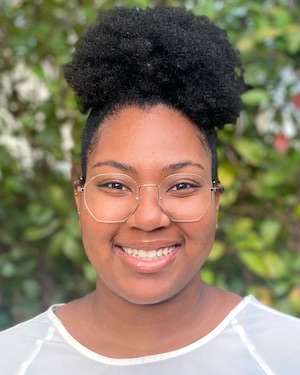
You, Me, and the OTD ⟩
September 5, 2021, by Kayla
Admissions Fieldwork What are OS/OT?
Being a Master’s student at USC Chan was an amazing experience filled with lots of learning, involvement in an amazing community, and one-of-a-kind experiences. So there’s no surprise that making the decision to apply and complete the Post-Professional OTD was quite simple. To me, this program means more than continuing my course of study or earning the distinction of “Dr”. To me, this program is all about personal and professional growth! Over the course of this next year I hope to work to reach a place where I will be prepared to achieve my professional goals and transform into the best therapist that I can be.
Along with choosing to complete the OTD with the above in mind, I could not pass up the opportunity for the amazing mentorship opportunities that are built into the program! Through my fieldwork experiences during the Entry-Level Master’s program I learned that I really really (really) love acute care OT. As I did my research on the different residency tracks offered, I was looking for an experience that would allow for specialized mentorship. I wanted a track that could support me while I work on my weaknesses and amplify my strengths to help me become a better therapist within my specific setting. The advanced clinical practice track consisted of everything that I was looking for and proved to be the perfect fit for me.
In the time preparing to embark on this journey and in the very short time since classes have begun, I have gained a deeper understanding of what I want to get out of this experience and ultimately made important decisions about my future career. That is honestly the biggest difference between the Master’s program and the OTD program. As a OTD resident you have the opportunity to decide and design your experience, from the practice context to your focus during your doctoral year. This freedom to tailor your residency plan is what makes this experience so meaningful and unique. And don’t worry, if the sound of that much freedom is off-putting to you, you are not alone during this experience!
Through all of the moments of feeling overwhelmed, doubting myself, and wondering if I would be able to find a residency site that was everything I wanted, I am so grateful that I stayed the course and found the site that is perfect for me! I have already gained so much so early in this journey and am excited to see where it takes me. More than anything, I am excited to be your OTD ambassador and be a part of your OTD journey as well!
⋯
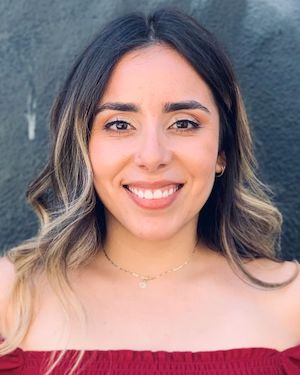
Occupational Therapy, but Make it Dramatic ⟩
September 2, 2021, by Silvia
Admissions First-Gen What are OS/OT?
I’d be lying if I said I wasn’t dramatic but being dramatic is what got me here, kind of.
You see, the moment I decided I wanted to go to college in the first place was very movie-like. I was a junior in high school when my family drove to Tijuana, Baja California for a weekend trip. I sat in the back of our Yukon with my head leaning against the window staring into the distance, probably contemplating my life, when I saw it. There it was written on the building: “UCSD School of Medicine.” I don’t know if you believe in signs, but this was mine. I was destined to become a doctor.
When college application season came around, I had no idea what I was supposed to do — I didn’t even know what a major was (the first-generation in me was showing). One day I was randomly talking to a girl in my class about what school she was applying to and what “major” she had chosen. This is when I discovered kinesiology and loved everything about it. Naturally, I changed my mind and decided I wanted to be a physical therapist, which was fine right? After all, it was still a career in the medical field. So, there I went applying to Cal Poly SLO and declaring kinesiology as my major. I was really going to college you guys.
When I got to college, we had an orientation into the major. That’s when I first met Dr. Clark. Dr. Clark began his introduction by telling us that we were going to start off wanting to become physical therapists but would leave the program wanting to be occupational therapists. I didn’t believe him until I failed chemistry. Imagine this: I get into my dorm, log onto my student portal, check my grade, and begin crying as I slide down the door in slow motion thinking I’m going to be kicked out of the university for failing a class. I could have won an Emmy or an Oscar. After I got it together, I realized that I was fine, everything was fine, and I didn’t need chemistry in my life anyway. I decided to change my academic track to one that didn’t require me to take the organic chemistry series and that is how occupational therapy popped up once again.
The more I learned about occupational therapy through my own research and volunteering experiences, the more certain I became that it was what I wanted to do. Occupational therapy highlights the humanity of an individual and recognizes that they are more than a label or diagnosis. We help individuals identify what is meaningful to them and their lives and develop a holistic approach to meet their goals and needs. I’ve come to understand that it’s not about what I do (i.e., deliver medical services) but about how I do it (i.e., being client-centered) that draws me to this field.
So, be a little dramatic, for all you know you may stumble upon your dream career.
⋯
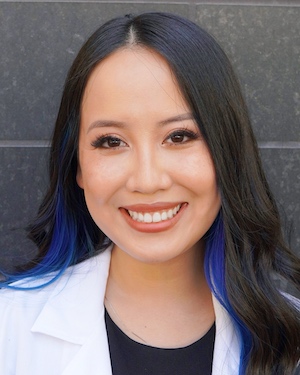
How Much Time Do You Have? ⟩
September 2, 2021, by Teresa
Admissions What are OS/OT?
The most interesting thing I’ve experienced this past year is that the more I learn about occupational therapy, the more difficult it is for me to explain it to others. At least not in a minute-long elevator spiel. Rereading my admissions essays when applying to OT school, my definition of “occupation” is packed into a box, tied neatly with a bow on top. However, if presented today with the question of, “Why did you choose to pursue occupational therapy?”, I would return with another question, “How much time do you have?” How do you even begin to explain why and how much you love, what you believe to be, the most incredible profession to ever exist? Well, here’s my attempt.
My parents arrived in America without two pennies to rub together but have always emphasized to me and my older siblings how our existence on Earth means nothing without generosity, a sense of genuine responsibility in the well-being of others, and dedication to helping people. From these values, I witnessed my oldest brother pursue a career in public service and marry my sister-in-law, who became a (USC-bred!) Doctor of Pharmacy in oncology. My older brother became a physician assistant (now, associate) specializing in urgent care and cardiology after five long years of coming home in the middle of the night while he worked as an EMT. My older sister (also USC-bred!) now organizes various clinical research trials to get FDA approval for experimental interventions. As proud as I was of their achievements, I was concurrently experiencing inner turmoil — what is going to be my contribution to the world? How am I going to help people?
When I was eight years old, my grandpa suffered his first stroke. For the next sixteen years until his passing this past summer, he would experience several more and became more medically complex with each one. My interactions with him didn’t resemble the nuclear grandpa character I saw in books and movies as a child. Instead, they occurred within the walls of nursing facilities, in the gym we constructed in his garage for his exercises, in the supermarket when I learned to read nutrition labels at an early age so I could hold him accountable for his diet.
In high school, I always spent too much time on arts and crafts. If a class project required a poster presentation or I was campaigning for a student council position, you could find me surrounded by markers and covered in glitter and paint all weekend. Then my brother would barge into my room and say, “Why are you wasting your time on this? Go do some math or something.” (For reference, math has always stressed me out. I blame times tables.) But I didn’t care. This was my happy place. I felt in control, the possibilities were limitless, and my mind was at peace.
In college, I worked at the UCLA Lab School as a teaching assistant for second-graders. My supervisor often assigned me to provide specialized attention to students with learning disorders and developmental disabilities, noting that I had a great deal of patience and a keen sense of empathy which allowed me to match students’ needs. On a fateful day in 2017 where time and circumstance met, a parent suggested the magic words “occupational therapy” onto my wanting ears and changed the trajectory of my life forever. I never believed that a profession like this existed — one that challenges areas of myself which require growth yet puts all the best parts of me to use. The part of me that my parents taught to help others, that practices compassion toward grandfathers and second-graders alike, and all while embedding creativity into the therapeutic process.
⋯
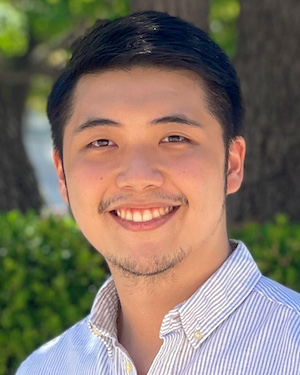
OT was not my first choice … but I have no regrets ⟩
August 29, 2021, by Marvyn
Admissions International What are OS/OT?
Occupational therapy wasn’t my first choice. There. I said it. But hear me out:
Medicine was the only field of choice if you want to help people. At least, that’s what I was told growing up in the Philippines. I have plenty of family members who are successful physicians and well-known professionals in the field of health sciences, but occupational therapy was never part of that extensive list. I always knew that helping people was the impact I wanted to make in this world, and the only option at the time was to pursue medicine. But time and destiny have other plans.
It wasn’t until I was applying for university where I first heard about occupational therapy. It was a week before the deadline for applications, and I still haven’t decided on a program to apply to. I was rapidly going back and forth on the list of programs and stumbled on “BS in Occupational Therapy”. I can’t believe I overlooked this! Quickly, I did a Google search on the program and rapidly grew interested in OT. And the rest was history! I sent my application and went on to my journey to become an OT.
My journey to becoming an OT was not cookie-cutter. Saying it was challenging was an understatement. There were many set goals and aspirations that ended up being broken. Schedules and timelines were being shaken and delayed. The motivation was at an all-time low. But despite all that, time and destiny have their way of steering you in the right direction. I eventually became an OT Intern (fieldwork). I started to work with individuals and their families of all ages — pediatrics and development, adult physical rehabilitation and geriatrics, mental health, and community-based rehabilitation. I learned that this was my life’s purpose after all: to help people and make an impact in their lives as an occupational therapist. My initial notions of becoming a doctor have faded, and I knew that I have a greater purpose in the field of occupational therapy. From there, I steered full gear to become a licensed occupational therapist in the Philippines.
After working as a licensed OT for almost two years, I realized that there was more to the world of OT that I still don’t know. I joined an information session of the Post-Professional Master’s program at USC and understood that this was my next big step. Fast forward a couple of months and here I am writing this blog post for you to read. It was a scary, giant leap forward, considering that we are still in the middle of a pandemic. I truly appreciate the great help of Dr. Arameh Anvarizadeh and Dr. Danny Park with the Global Initiatives team in making this process the smoothest it can be despite the circumstances. I just started my journey here at USC, and I already have tons of stories to share. But I won’t make this blog post any longer, so keep a lookout for my next blog entries to tell you more about it.
If you have ever watched Marvel Studios’ Loki, the TV series, you can consider me as a “variant” of myself in the universe’s Sacred Timeline. There is a Marvyn in another universe who is a medical doctor, there’s another Marvyn who ended up being a pilot, and then there’s me: Marvyn the occupational therapist and a proud master’s student of the USC Chan Division of Occupational Science and Occupational Therapy. Things might not have turned out the way it was initially planned, and that’s the beauty of this whole thing! I am so glad to be where I am today, most especially in USC, and I can’t wait to see what comes next!
⋯





